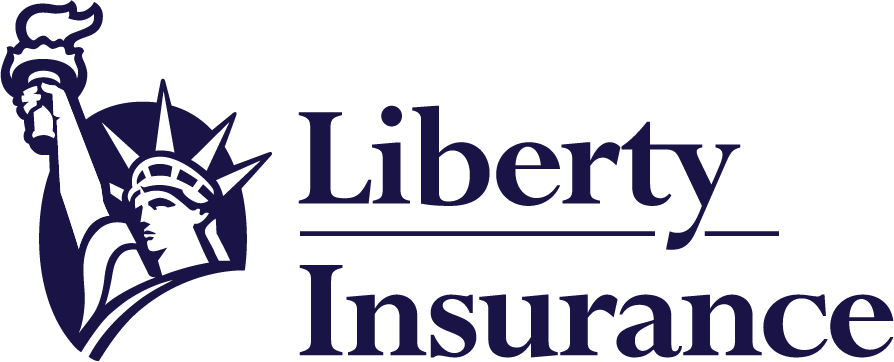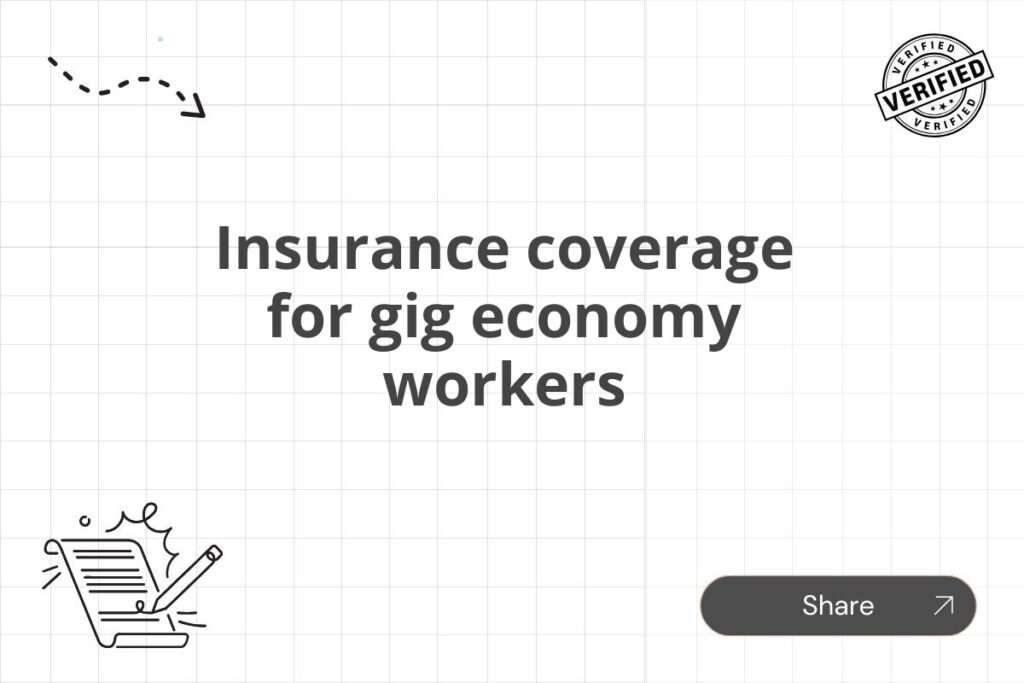Meta Description: Gig economy workers face unique insurance needs. Learn about essential coverage options, including health, disability, liability, and life insurance, to protect yourself and your business. Find the best fit for your independent work lifestyle.
The gig economy, a landscape of independent contractors, freelancers, and on-demand workers, has exploded in recent years. This flexibility, while offering numerous benefits, also presents a unique set of challenges, particularly when it comes to insurance coverage. Traditional employer-sponsored insurance plans are typically unavailable to gig workers, leaving them responsible for securing their own protection. Understanding the different types of insurance coverage crucial for gig economy workers is vital for mitigating risk and ensuring financial security.
This comprehensive guide explores the various insurance options available and helps you navigate the often-complex world of self-insurance in the gig economy. We’ll delve into the specifics of each coverage type, outlining its benefits and considerations to help you make informed decisions about protecting your livelihood.
Essential Insurance Coverages for Gig Economy Workers
The insurance landscape for gig workers differs significantly from traditional employment. Instead of relying on employer-provided benefits, you must proactively seek out and secure your own coverage. This often means piecing together different policies to create a comprehensive safety net. Here are some key areas to consider:
1. Health Insurance
Health insurance is arguably the most critical aspect of insurance for gig workers. Without employer-sponsored coverage, securing affordable and comprehensive health insurance is paramount. Several options exist:
- Marketplace Plans (Affordable Care Act): The Affordable Care Act (ACA) marketplaces offer subsidized health insurance plans based on income. Eligibility and subsidies vary by state and income level. Navigating the marketplace can be complex, but resources are available to assist.
- Short-Term Health Insurance: These plans offer shorter-term coverage and are generally less expensive than ACA plans, but they typically have lower benefits and may not cover pre-existing conditions. Consider this option carefully and weigh the cost-benefit ratio against your health needs.
- COBRA: If you recently lost employer-sponsored health insurance, COBRA allows you to continue coverage for a limited time, but at your own expense. This can provide a bridge while you secure a new plan.
- Private Health Insurance Plans: Numerous private insurance companies offer individual health plans. Research different plans carefully to compare coverage, premiums, and deductibles to find the best fit for your needs and budget.
2. Disability Insurance
Disability insurance protects your income if you become unable to work due to illness or injury. This is particularly crucial for gig workers, as lost income can quickly lead to significant financial hardship. There are two main types:
- Short-Term Disability Insurance: Covers income loss for a limited period, typically a few months. This is often less expensive than long-term disability insurance.
- Long-Term Disability Insurance: Provides income replacement for a longer duration, potentially years, depending on the policy. This is a more significant investment but offers greater protection.
Many gig workers opt for private disability insurance policies, as government programs like Social Security Disability Insurance (SSDI) often have stringent eligibility requirements and lengthy processing times.
3. Liability Insurance
Liability insurance protects you from financial losses resulting from claims of bodily injury or property damage caused by your work. This is particularly relevant for gig workers involved in service-based industries, such as handymen, house cleaners, or delivery drivers.
- General Liability Insurance: This covers claims related to accidents or injuries that occur on your worksite or during service provision.
- Professional Liability Insurance (Errors & Omissions): This protects you from claims of negligence or professional errors in your work.
- Umbrella Insurance: This provides additional liability coverage beyond your existing policies, offering broader protection against significant claims.
The specific type of liability insurance you need will depend on the nature of your gig work. Consult with an insurance broker to determine the appropriate level of coverage.
4. Life Insurance
Life insurance provides financial support to your dependents in the event of your death. While not always top-of-mind for gig workers, it’s crucial for those with financial responsibilities, such as mortgages, loans, or dependent children. Options include:
- Term Life Insurance: Provides coverage for a specific period, typically 10, 20, or 30 years. It’s generally more affordable than whole life insurance.
- Whole Life Insurance: Offers lifelong coverage and builds cash value over time. It’s a more significant investment but provides long-term security.
5. Workers’ Compensation Insurance
Workers’ compensation insurance typically covers medical expenses and lost wages for work-related injuries or illnesses. However, the availability and specifics of workers’ compensation vary significantly by state and the nature of the gig work. Independent contractors may not be covered under traditional workers’ compensation programs. Some gig platforms offer supplemental workers’ compensation options, but it’s essential to carefully review the terms and conditions.
Finding the Right Insurance Coverage
Navigating the world of insurance for gig workers can feel overwhelming. Here are some tips to simplify the process:
- Assess your risks: Carefully consider the potential risks associated with your gig work to determine the types and levels of insurance you need.
- Compare quotes: Obtain quotes from multiple insurance providers to compare prices and coverage options.
- Consult a broker: An independent insurance broker can help you navigate the complexities of insurance and find the best policies for your needs.
- Read the fine print: Before purchasing any policy, thoroughly review the terms, conditions, and exclusions to ensure you understand the coverage.
- Regularly review your coverage: As your circumstances change, revisit your insurance needs to ensure you have adequate protection.
Securing appropriate insurance coverage is a critical step in protecting your financial well-being as a gig worker. By understanding the various options available and taking proactive steps to secure adequate protection, you can mitigate risk and maintain financial stability in the dynamic landscape of the gig economy. Remember, consulting with a financial advisor or insurance professional can provide valuable personalized guidance.






















